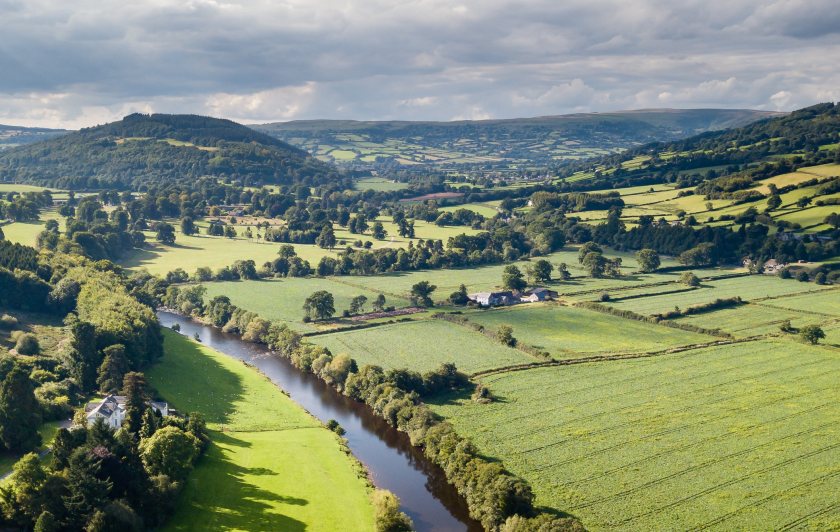Sustainable Farming Scheme launches amid calls for budget clarity

Farm leaders have welcomed the official launch of Wales’ Sustainable Farming Scheme (SFS) as a landmark moment for rural policy, while urging the Welsh government to address ongoing concerns around funding, implementation, and scheme clarity.
Unveiled today (15 July) ahead of the Royal Welsh Show, the long-anticipated SFS represents the most significant agricultural policy shift since the UK’s departure from the EU and the phasing out of the Basic Payment Scheme (BPS).
SFS is expected to launch formally in 2026, with a transition period running until 2030, by which time BPS will be fully withdrawn.
Key amendments announced include the removal of the contentious 10% tree cover requirement and the inclusion of common land in the scheme. However, farmers will need to have at least 10% of their land actively managed as habitat.
All participants will need to complete an opportunity plan for woodland and hedgerow creation in the first year of entry into the scheme. They will need to demonstrate progress towards their plan by the end of the 2028 scheme year.
An annual Universal Payment will go to farmers who follow the scheme's requirements including a set of Universal Actions, which have been reduced from 17 to 12.
The Welsh government has also indicated it will explore introducing a social value payment and provide support for designated sites.
While these developments have been broadly welcomed, farming organisations have flagged several unresolved issues.
Notably, the lack of a multi-annual budget commitment has left many land managers concerned about the scheme’s long-term financial sustainability.
In addition, the scheme remains incomplete. The Optional and Collaborative layers—designed to offer more tailored or advanced support—are still under development and unavailable to farmers at this stage.
The planned tapering of BPS has emerged as a major concern. Under current proposals, support will fall to 60% in 2026, 40% in 2027, 20% in 2028, and end altogether in 2029.
This accelerated reduction departs from earlier expectations and could leave some farmers financially exposed.
Further uncertainty surrounds the proposed payment mechanism. A ‘Ready Reckoner’ tool will provide indicative payment estimates rather than guaranteed figures, complicating business planning and investment decisions.
Larger land-based businesses are also expected to face particular challenges due to a £300,000 cap on payments and additional tapering for those receiving more than £25,000—compounding impacts from recent changes to schemes such as Glastir and Habitat Wales.
Announcing the scheme today, Deputy First Minister for Rural Affairs, Huw Irranca-Davies, highlighted the balance between supporting agriculture and environmental goals.
“It’s clear that the people of Wales want us to back Welsh farming, but they also want to see nature restored, soils protected, water quality in our rivers improved, access to the countryside maintained and nature supported to recover and thrive."
He described SFS as a new partnership between farmers and the wider public: “With this in mind, the scheme represents a new relationship between the people of Wales and our farmers.
"This is not just a scheme for farmers, this is a scheme for the whole of Wales – a whole farm, whole nation approach."
Victoria Bond, director of CLA Cymru, which represents Welsh farmers and landowners, noted that while progress had been made, critical issues remain — most notably the unchanged overall budget and the reduction in the Basic Payment Scheme taper.
“Most frustratingly, the total budget remains static, and there is a reduction in the BPS taper,” she said. “However, we do welcome the consideration of a social value payment, and the inclusion of payments on common and designated sites.”
Ms Bond emphasised that the transition to the new scheme must be carefully managed: “Transition must be just, not rushed. Farmers need clarity, stability, and a clear long-term funding commitment.”
NFU Cymru President Aled Jones voiced serious concern over the unexpected move to reduce BPS support for farmers who choose not to enter SFS in 2026.
“This unwelcome decision by Welsh government is extremely worrying for farmers who had previously been informed that those opting not to enter the new Sustainable Farming Scheme in 2026 would receive 80% of their BPS. Farming businesses have forward planned on this basis.”
He stressed that the announcement comes at a particularly difficult time for the sector, as key technical details and practical guidance around the new scheme are still lacking — making it nearly impossible for farmers to make informed decisions about whether to join the scheme when it launches on 1 January 2026.
“With harvest well underway and next year’s cropping and livestock purchases already in motion, many farmers will not be able to pivot their business to join the new scheme from January,” he warned.
Mr Jones also highlighted the added pressure caused by UK government tax reforms due to take effect in April 2026, which could force many family farms to restructure.
“With Welsh government now slashing the first year of the tapered transition from the BPS, many will feel they are now stuck between a rock and a hard place,” he said.
Andrew Tuddenham, head of policy Wales at the Soil Association, welcomed the scheme’s publication, noting: “After years of debate and design the time for delay has passed.
"The environmental and food resilience threats we face are more urgent now than ever, and pressure on public finances is growing.
"The new scheme must now launch in January 2026, but how it succeeds rests on whether it can sustain and strengthen nature-friendly farming in Wales.”








